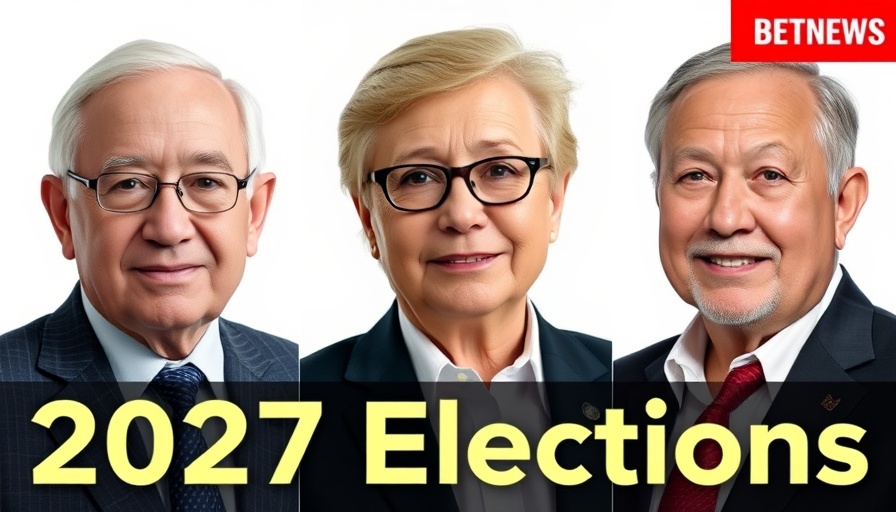
Suspension of Judiciary Workers’ Strike: A New Dawn for Justice?
In an important development in Nigeria, the judiciary staff union has suspended its nationwide strike, bringing hope for timely justice delivery. The action comes after intensive negotiations with representatives from the Chief Justice and other key stakeholders, resulting in commitments to meet long-standing demands. The union's struggle included calls for a new minimum wage and substantial salary increases, a reflection of the judicial workforce's plight amidst Nigeria's broader economic challenges.
In 'Two Suspected Terrorists Killed in Kampala - 6PM News 3rd June 2025', the discussion dives into pressing issues in Nigeria, prompting a deeper analysis of the current political and social challenges facing the nation.
The decision to suspend the strike aligns with the urgent need for the judiciary to function effectively, especially with an impending election cycle that may further complicate administrative operations. With the courts reopened, the stakes are higher for the government to fulfill its agreed obligations—from salary adjustments to timely payment of bonuses—especially considering the mistrust that has plagued labor negotiations in Nigeria.
Political Landscape Shifting as 2027 Elections Approach
As discussions heat up for the 2027 general elections, key political figures have gathered to strategize against the backdrop of mounting public dissatisfaction with the current APC-led government. During a recent birthday lecture, a coalition led by former Vice President Atiku Abubakar pledged to unify forces against the incumbent President Bola Tinubu. The theme of the gathering—“Weaponization of Poverty”—highlights the growing frustration among citizens who feel they are bearing the brunt of economic mismanagement.
The upcoming elections are not merely about political rivalries but embody the collective yearning for substantial change from a government accused of fostering underdevelopment. With many discontented elite voicing their grievances, the rhetorical landscape may shift dramatically as Nigerians aspire for representatives who genuinely understand and address the socio-economic malaise.
Flood Tragedy in Niger State: An Unfolding Humanitarian Crisis
The recent catastrophic flooding in Niger State has resulted in over 200 fatalities, drawing attention to the urgent need for improved disaster preparedness and management in Nigeria. Eyewitness accounts from the Mukwa local government area paint a vivid picture of a community in distress, grappling with inadequate emergency responses. The interplay of human actions—such as the blocking of drainage systems—has exacerbated the flooding, rendering these types of disasters partially preventable.
As recovery efforts continue, victims express frustration over inadequate support and poor living conditions in makeshift camps. This tragedy underscores the need for a comprehensive approach to disaster management, focusing on planning and infrastructure that considers climate vulnerabilities, particularly as Nigeria faces increasing climate instability.
Security Challenges: Soldiers Sent to Combat Persistent Attacks
In yet another response to escalating security threats, the Chief of Army Staff has relocated to Makurdi, Benue State. The move addresses a surge in killings attributed to militia groups, representing an ongoing battle against rampant violence that has plagued Nigeria. With nearly 100 casualties reported in the past week alone, the government's intended military deployments aim to restore order and provide immediate relief to affected communities.
This increase in military presence brings forth questions regarding the long-term viability of militarized solutions in a nation grappling with deep-rooted issues of governance and social unrest. As the cycle of violence continues, comprehensive strategies addressing both security and socio-economic initiatives are paramount.
Legal Struggles: Lawsuits for Education and Justice
The West African Examinations Council (WAEC) now faces a significant lawsuit demanding accountability for what has been termed unlawful examination conditions. Allegations of inhumane treatment during examinations serve as a stark reminder of the systemic failures that continue to hamstring educational advancement in Nigeria. The campaign initiated by a lawyer represents a critical juncture, where legal advocacy intersects with educational rights, emphasizing the importance of institutional accountability.
This case accentuates the need for improved governance in the educational sector, challenging failures that not only violate rights but threaten the integrity of academic achievement. The pursuit of justice for these students signifies a broader demand for reform in educational policies that prioritize the welfare and rights of citizens.
The Broader Implications for Nigeria’s Future
The intersection of these issues—judicial reform, political mobilization, humanitarian crises, security concerns, and educational rights—paints a complex portrait of Nigeria's path forward. As the country navigates internal strife and external pressures, the collective voice of its citizens will be pivotal in shaping a just and equitable future.
The call to action is clear: stakeholders must unify efforts to address systemic failings, from social welfare to governmental accountability to uphold the rights and dignity of the Nigerian populace.
 Add Row
Add Row  Add
Add 


Write A Comment